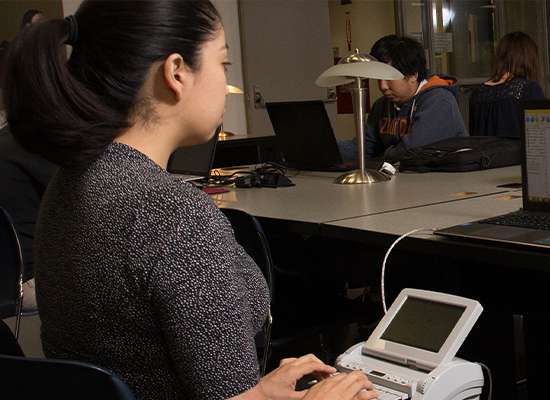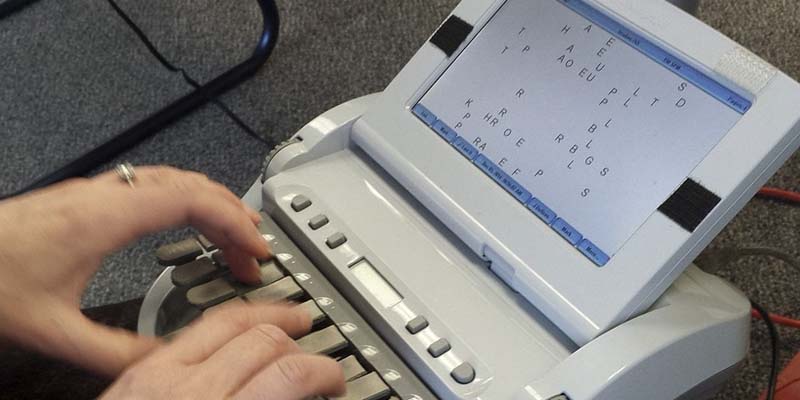Everything About Court Reporting: Essential Insights Into Its Significance in Regulation
Court reporting serves a crucial function within the lawful framework, supplying a reputable and accurate document of procedures. Through innovative strategies and devices, court press reporters catch the nuances of testimonies and lawful discussion. The importance of their work extends beyond simple transcription. As the lawful landscape evolves, so too does the duty of innovation in court reporting. Comprehending these dynamics reveals deeper effects for justice and openness in the legal system.
The Duty of Court Reporters in the Legal System

Usually overlooked, court reporters play an important duty in the legal system by guaranteeing a verbatim and accurate record of process. Their primary obligation entails recording spoken words throughout tests, depositions, and other legal events, which serves as an official document for future recommendation. This documentation is essential for charms, as it provides the essential information for evaluating decisions made by juries and judges.
Stenotype reporter must possess phenomenal listening skills and a deep understanding of lawful terms to record the nuances of statement and argumentation precisely. Their job adds to openness within the judicial procedure, permitting accountability and fairness. Additionally, they promote accessibility to justice by making documents available to entailed celebrations, making sure that everyone has the chance to evaluate the proceedings. This way, stenotype reporter maintain the stability of the legal system, reinforcing the relevance of precise communication in matters of legislation.
Strategies and Devices Made use of in Court Reporting
In court reporting, different methods and tools enhance the precision and performance of transcription. Stenography technology plays a considerable role, enabling reporters to capture talked words quickly, while digital recording techniques supply alternative services for documents. Comprehending these tools is vital for comprehending just how court press reporters fulfill their crucial function in the lawful system.
Stenography Technology Review
Stenography innovation offers as the cornerstone of modern-day court reporting, making it possible for exact and efficient transcription of talked discussion. Utilizing specialized makers called stenographs, stenotype reporter can record speech at exceptional speeds, commonly exceeding 200 words per minute. These devices use an unique keyboard design that permits several secrets to be pushed concurrently, producing phonetic depictions of words - durham court reporting. This technique minimizes the demand for considerable spelling and boosts transcription precision. Additionally, clerks make use of numerous shorthand strategies and signs to more enhance the process, making sure that no detail is neglected throughout procedures. The integration of stenography innovation not just fosters reliable interaction in lawful setups but likewise maintains the honesty of the judicial procedure by giving trustworthy and precise records of conversations
Digital Recording Techniques
A boosting variety of court reporting professionals are turning to electronic recording methods to boost the precision and performance of their transcriptions. These methods use advanced audio and video clip innovation to record procedures in real-time. Digital recorders, usually paired with top notch microphones, guarantee that every word spoken is maintained with quality. Furthermore, specialized software can transcribe audio data immediately, enabling quicker turn-around times. Some professionals incorporate dual recording systems for redundancy, guaranteeing no crucial info is lost. Furthermore, digital recordings can be quickly indexed and searched, assisting in swift access of specific segments. As legal atmospheres evolve, embracing these digital tools not just improves the reporting procedure but also maintains the honesty of the record.
The Significance of Precision in Transcription
Precision in transcription is vital in court reporting, as it guarantees that lawful documents show real material of process. This precision can greatly affect instance results, affecting the decisions made by courts and judges. Preserving high standards of precision is extremely important in the lawful profession.

Accuracy in Lawful Records
The legal system relies heavily on eloquent disagreements and influential unsupported claims, the real backbone of judicial process lies in the accuracy of legal documents. Precise transcription is essential, as it ensures that every statement, inquiry, and judgment is recorded correctly. Such accuracy serves numerous purposes, consisting of offering a trustworthy reference for charm procedures and preserving the honesty of the judicial system. Mistakes in transcription can result in misunderstandings, misconceptions, and potentially harmful effects for all celebrations included. As a result, stenotype reporter must have phenomenal skills and focus to detail, as their job directly impacts the clarity of legal documents. Eventually, the accuracy of legal records underpins the trust fund put in the judicial procedure, strengthening the value of thorough transcription.

Effect On Situation Outcomes
When lawful procedures unfold, the accuracy of transcription usually determines the trajectory of a situation's outcome. Precise court reporting guarantees that every word spoken is effectively captured, making it possible for juries, attorneys, and judges to make informed choices based upon the document. Errors in transcription can result in misunderstandings, false impressions, and possibly unjustified judgments. The stability of lawful records depends heavily on the accuracy of these documents, as they function as the foundation for allures and additional lawsuits. In high-stakes instances, where the implications are profound, the function of a court reporter becomes even more vital. Preserving extensive requirements in transcription not only sustains the lawful process yet also supports the concepts of justice and fairness in the court room.
Court Reporting in Various Legal Setups
Court reporting plays an essential function throughout various legal settings, guaranteeing that process are properly documented for future referral. In criminal court, court press reporters transcribe statements, evidence, and judicial judgments, which are important for allures and case reviews. In civil lawsuits, precise records promote the discovery process and give a reliable record for test process. Administrative hearings commonly count on court press reporters to keep an official record, making sure transparency and accountability in governmental processes. Family courts likewise take advantage of court reporting, as exact documentation of proceedings can affect wardship decisions and settlements. In addition, depositions in pre-trial stages need precise recordings to capture the subtleties of witness testimonies, which might be considerable fit case methods. Overall, court reporting offers as a foundation in the legal system, cultivating fairness and quality throughout varied judicial settings.
The Effect of Innovation on Court Reporting
As modern technology remains to evolve, its impact on court reporting visit this website has become significantly considerable. Technologies such as digital recording, real-time transcription software application, and expert system have changed conventional techniques. Digital audio recorders currently catch court room procedures with exceptional quality, enabling court press reporters to concentrate on subtleties and context instead of solely on inputting. Real-time transcription modern technologies allow immediate access to transcripts, advertising performance and boosting cooperation among lawyers. In addition, expert system devices are being incorporated to assist in the transcription procedure, minimizing human error and speeding up document generation. Despite these improvements, the important skills of stenotype reporter stay important, as they provide a nuanced understanding of lawful language and court dynamics. Inevitably, technology matches as opposed to replaces the experience of court reporters, ensuring that the stability and precision of legal documentation are maintained in an increasingly electronic landscape.
Occupation Opportunities and Pathways in Court Reporting
The development of technology in court reporting has actually opened up a variety of job opportunities for striving experts in the field. Generally, stenotype reporter were primarily in charge of recording lawful procedures. Nonetheless, developments such as electronic recording and real-time reporting have broadened their duties.
Today, stenotype reporter can specialize in locations such as captioning for transmission, supplying transcription solutions for lawful firms, and operating in the corporate market for depositions or conferences - durham court reporting. In addition, possibilities in remote reporting, specifically because of the increase of virtual courtrooms, get redirected here have become increasingly prevalent
Educational pathways include formal training programs, qualification courses, and continuing education to stay updated with technological modifications. Networking within expert and legal companies additionally plays a significant function in profession improvement. Generally, the diverse opportunities in court reporting show the dynamic nature of the legal profession and the enhancing demand for competent specialists.
The Future of Court Reporting in an Evolving Legal Landscape
How will the function of court reporting adapt as the legal landscape remains to advance? As modern technology breakthroughs, court reporting is most likely to accept innovative devices such as expert system and real-time transcription software application. These improvements may improve accuracy and performance in recording legal process. Additionally, the increasing frequency of remote hearings requires that stenotype reporter become skilled in digital systems, making certain smooth documents no matter location.
At the same time, stenotype reporter will need to adjust their abilities to manage brand-new sorts of cases, such as those including cyber legislation and copyright disagreements, which call for specialized understanding. Additionally, the need for instantaneous accessibility to transcripts will push experts to supply quicker turn-around times without compromising top quality. Ultimately, the future of court reporting will depend upon a balance between standard abilities and technical combination, making certain that the integrity of the lawful procedure remains undamaged in a progressively electronic globe.
Frequently Asked Concerns
Exactly How Do Court Press Reporters Handle Sensitive Information During Procedures?

What Qualifications Are Needed to Become a Court Reporter?
To end up being a stenotype reporter, individuals typically require a secondary school diploma, specialized training from an accredited program, efficiency in shorthand or voice writing, and accreditation or licensure, depending upon state needs and laws.
Are Court Reporters Required to Have a Certificate?
Court reporters are often called for to obtain a license, relying on the territory. Licensing warranties that they satisfy certain criteria of efficiency and professionalism and reliability, which is vital for maintaining the stability of legal process.
Exactly How Do Court Reporters Take Care Of Different Accents and Languages?
Stenotype reporter take care of various accents and languages via considerable training, method, and knowledge with numerous speech patterns. They typically use specialized software and strategies to properly catch talked words, making sure clarity and accuracy in their transcripts.
What Is the Ordinary Income for a Court Reporter?
The typical salary for a court press reporter varies by place and experience, typically varying from $50,000 to $80,000 yearly. In high-demand locations, salaries can go beyond $100,000, click to read more mirroring the occupation's relevance and specialized skills.
Often forgotten, court reporters play an essential duty in the lawful system by guaranteeing a exact and verbatim record of process. In criminal court, court reporters transcribe statements, proof, and judicial judgments, which are critical for appeals and case testimonials. Household courts additionally profit from court reporting, as accurate documentation of procedures can affect protection decisions and settlements. Generally, court press reporters were primarily accountable for transcribing lawful process. Today, court press reporters can specialize in locations such as captioning for television programs, offering transcription services for lawful firms, and functioning in the corporate industry for depositions or conferences.